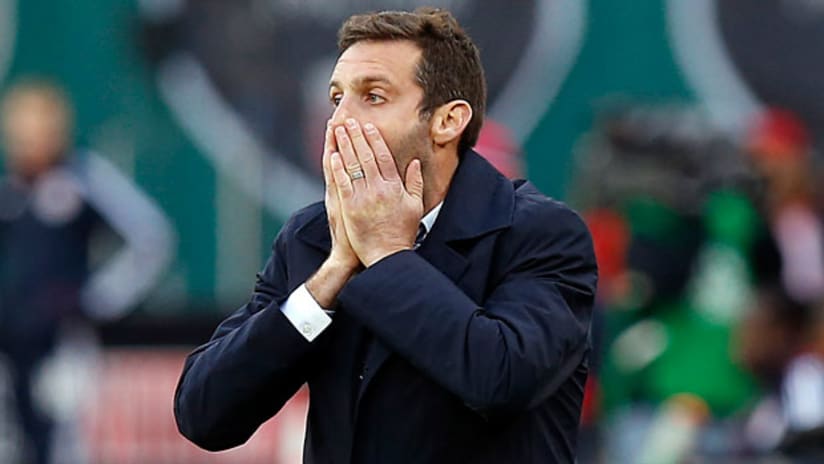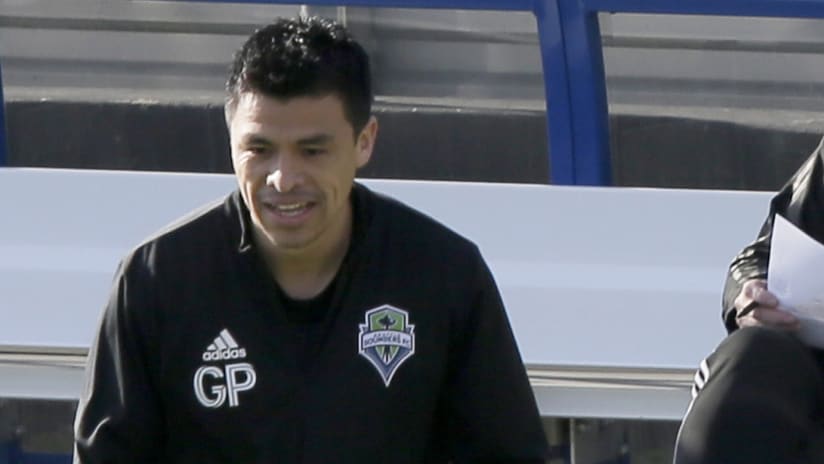WASHINGTON - D.C. United’s 2-1 victory over Alajuelense on Wednesday felt eerily familiar to observers of the club: for the second time in under six months, D.C. were eliminated from competition after winning a game.
Having dug themselves a three-goal deficit in the opening leg of their CONCACAF Champions League quarterfinal, United came back to life on Wednesday, nabbing an early goal and narrowing the gap to two. But the Costa Ricans didn’t fold; they struck back, using a second-half equalizer to put the series to rest. Fabian Espindola’s late penalty kick strike — just moments from the death — was largely conciliatory.
It’s a script United fans will recognize: D.C. ended their 2014 in a very similar manner to the way they bowed out of this competition, putting in a lackluster performance in the opener of their Eastern Conference semifinal series against the New York Red Bulls before coming back to life in the return leg, only to fall just short.
Despite the freezing rain and the calls for D.C. penalties earlier in the game, the lesson of the match for United was a wasted opportunity to begin the series with a strong performance.
“This wasn’t about the ref or the field tonight. This is about the first leg,” United head coach Ben Olsen told reporters after Wednesday's match. “It’s the second time we’ve done it and we need to learn that lesson that in this competition format, such as the MLS playoffs, you have to show up both legs and go about it in a dire way. We didn’t do that.”
"It’s two first legs in the past 6 months that we’ve started out this way, started out in a bad way and then we’re scrambling in the second leg,” added United midfielder Chris Pontius. "I thought we had them on the run here and then they got that deflected goal. It’s unfortunate but we simply can’t put ourselves down three goals going into these return legs."
Few United players made any excuse for their opening leg performance, but some couldn’t help but suggest that the conflict between MLS’ schedule and the one used more commonly throughout the rest of the soccer world creates an unfair advantage. Whatever the disadvantage, the format and schedule of the competition likely won’t change anytime soon, and neither will Major League Soccer’s annual calendar. So what, then, can be done to level the playing field a bit more?
“I guess that’s a question for the commissioner,” said United midfielder Chris Rolfe. “It’s complicated, and I’m not quite sure I really have a solution for it."
“It doesn’t help that we’re coming out of preseason and they’re however many months out of their league,” added Pontius. “But we just played poorly down there. They beat us to every second ball, they came out with more energy. We had that energy and fire and commitment tonight but it was too little too late.”
D.C. won’t play a two-legged series again for quite some time. The club will turn their focus towards their MLS season opener on Saturday afternoon (3 pm ET, MLS Live in US, RDS in Canada), where they’ll meet the Montreal Impact — who just last night emerged victorious from their quarterfinal match-up against Mexican side Pachuca. But between now and the MLS playoffs — the next time United could end up playing a home and away — Olsen will surely mull over a way to keep history from repeating itself again.
“I got a lot of time to think about this,” concluded Olsen. "I think just going through this process again -- it hammers it home even more to the guys and myself and our staff that we need to make sure and prepare to do what’s necessary over 180 minutes rather than just 90.”







